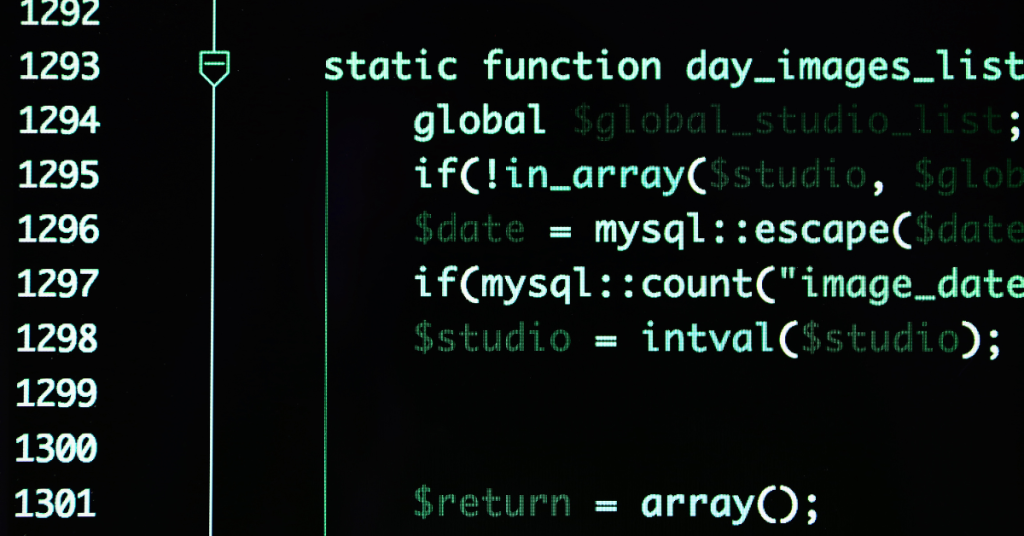In an era of rapidly evolving digital threats, the demand for skilled cybersecurity professionals has never been higher. As we enter 2024, cybersecurity bootcamps have emerged as a popular and effective way to gain the necessary skills and knowledge to launch a career in this critical field. This comprehensive guide will explore the top 10 cybersecurity boot camps of 2024, providing you with valuable insights to help you choose the best program for your needs and aspirations in the world of cyber security.
What are cybersecurity boot camps and why are they important in 2024?
Definition of cybersecurity boot camps
Cybersecurity boot camps are intensive, short-term training programs designed to equip participants with the essential skills and knowledge required to pursue a career in cybersecurity. These boot camps offer a focused curriculum that covers various aspects of information security, network security, and best practices in the field. Unlike traditional degree programs, cybersecurity bootcamps provide a more streamlined and hands-on approach to learning, allowing students to quickly gain practical skills that are immediately applicable in the workforce.
The growing importance of cybersecurity in today’s digital landscape
As we progress further into the digital age, the importance of cybersecurity continues to grow exponentially. With the increasing frequency and sophistication of cyber attacks, organizations across all industries are recognizing the critical need for robust security measures to protect their digital assets and sensitive information. This has led to a surge in demand for cybersecurity professionals who can effectively safeguard against evolving threats and implement best practices in security operations. As a result, the cybersecurity field has become one of the fastest-growing and most lucrative career paths in the technology sector.
Benefits of attending a cybersecurity boot camp in 2024
Attending a cybersecurity boot camp in 2024 offers numerous advantages for individuals looking to enter or advance in the cybersecurity field. These intensive programs provide a rapid pathway to acquiring in-demand skills, often in a matter of weeks or months. Bootcamps offer hands-on experience with the latest tools and technologies used in the industry, ensuring that graduates are well-prepared for the challenges they’ll face in real-world scenarios. Additionally, many cybersecurity bootcamps offer career support services, including job search assistance and networking opportunities, to help graduates secure positions as cybersecurity analysts, security engineers, or other roles within the cybersecurity ecosystem.
How do I choose the best cybersecurity bootcamp for my needs?
Factors to consider when selecting a cybersecurity bootcamp
When choosing a cybersecurity bootcamp, there are several key factors to consider. First, evaluate the curriculum to ensure it covers the core concepts and skills you need to become a cybersecurity professional. Look for programs that offer comprehensive coverage of topics such as network security, cloud security, and security operations. Additionally, consider the reputation of the bootcamp provider, the qualifications of the instructors, and the success rates of previous graduates. It’s also important to assess the level of hands-on training and practical exercises offered, as these are crucial for developing the skills necessary to excel in a cybersecurity career.
Comparing online cybersecurity boot camps vs. in-person programs
When deciding between online cybersecurity boot camps and in-person programs, it’s essential to consider your personal learning style and schedule. Online cybersecurity bootcamps offer greater flexibility, allowing you to study at your own pace and from any location. This can be particularly beneficial for those who are working full-time or have other commitments. However, in-person programs may provide more immediate interaction with instructors and peers, as well as access to physical lab environments. Some bootcamps offer hybrid models that combine both online and in-person elements, providing the best of both worlds. Ultimately, the choice between online or in-person bootcamps will depend on your individual circumstances and preferences.
Assessing the reputation and credentials of bootcamp providers
To ensure you’re investing in a high-quality cybersecurity bootcamp, it’s crucial to assess the reputation and credentials of the providers. Look for bootcamps that are associated with reputable institutions or have partnerships with leading cybersecurity companies. Research the backgrounds of the instructors and ensure they have relevant industry experience. Additionally, seek out reviews and testimonials from past students to gain insights into the quality of instruction and the overall bootcamp experience. Many top cybersecurity bootcamps also offer industry-recognized certifications upon completion, which can be valuable for your job search and career advancement in the cybersecurity field.
What are the top 10 cybersecurity bootcamps of 2024?
Detailed reviews of each top-rated cybersecurity bootcamp
1. Evolve Security Academy: Known for its comprehensive curriculum and strong industry partnerships, Evolve Security Academy offers both online and in-person bootcamps. Their program covers a wide range of cybersecurity topics and includes hands-on labs and real-world projects.
2. Flatiron School Cybersecurity Analytics: This bootcamp focuses on preparing students for roles in cybersecurity analytics and offers a robust curriculum that includes both technical skills and soft skills essential for success in the field.
3. Springboard Cybersecurity Career Track: Springboard’s online bootcamp is known for its flexible schedule and one-on-one mentorship program, making it an excellent choice for those seeking personalized guidance in their cybersecurity journey.
4. SANS Institute Cyber Academies: SANS is a highly respected name in cybersecurity training, and their bootcamps offer intensive, hands-on experiences led by industry experts.
5. SecureSet Academy: This bootcamp provides both full-time and part-time options and is known for its emphasis on practical skills and industry-relevant projects.
6. Fullstack Academy Cyber Security Bootcamp: Offering both online and in-person options, Fullstack Academy’s bootcamp is designed to prepare students for roles such as cybersecurity analyst and penetration tester.
7. Hack Reactor Cybersecurity Bootcamp: Known for its rigorous curriculum and strong alumni network, Hack Reactor’s bootcamp covers a wide range of cybersecurity topics and includes career support services.
8. Coding Dojo Cybersecurity Bootcamp: This bootcamp offers a comprehensive curriculum that covers both offensive and defensive cybersecurity techniques, preparing students for various roles in the field.
9. Divergence Academy Cybersecurity Professional Penetration Tester Program: Specializing in penetration testing, this bootcamp offers in-depth training for those interested in offensive security roles.
10. NPower Tech Fundamentals + Cybersecurity Training: This nonprofit organization offers free training to young adults and veterans, providing a pathway to cybersecurity careers for underserved communities.
Comparison of program features, duration, and costs
The duration and cost of cybersecurity bootcamps can vary significantly. Full-time programs typically range from 12 to 15 weeks, while part-time options may extend to 24 weeks or more. Costs for the best cybersecurity bootcamps of 2024 can range from $10,000 to $20,000, with some programs offering income share agreements or deferred tuition options. It’s important to consider the value proposition of each bootcamp, taking into account factors such as the curriculum depth, instructor quality, and career support services offered. Some bootcamps, like Evolve Security Academy, provide access to additional resources and certifications, which can add value to the overall package.
Success rates and job placement statistics for each bootcamp
When evaluating cybersecurity bootcamps, it’s crucial to consider their success rates and job placement statistics. Many top bootcamps boast high job placement rates, with some reporting that over 90% of their graduates secure positions in the cybersecurity field within six months of completion. For example, Evolve Security Academy reports a 93% job placement rate, while Springboard claims a 94% success rate for career transitions or promotions. It’s important to note that individual results may vary, and success often depends on factors such as prior experience, location, and the current job market. When researching bootcamps, look for transparent reporting of these statistics and ask for details about the types of roles and companies their graduates have joined.
What skills can I expect to gain from a cybersecurity boot camp?
Core cybersecurity concepts and technologies covered
Cybersecurity bootcamps typically cover a wide range of core concepts and technologies essential for success in the field. These include network security fundamentals, operating system security, cryptography, and risk management. Students can expect to learn about various types of cyber attacks and how to defend against them, as well as best practices for securing both on-premises and cloud-based systems. Many bootcamps also cover topics such as incident response, security operations center (SOC) management, and compliance frameworks like GDPR and HIPAA. Additionally, students will often gain hands-on experience with industry-standard tools and technologies used for vulnerability assessment, penetration testing, and security monitoring.
Hands-on experience and practical training opportunities
One of the key advantages of cybersecurity bootcamps is the emphasis on hands-on experience and practical training. Many programs, such as the Evolve Security Academy, incorporate real-world projects and simulations that allow students to apply their knowledge in scenarios that mimic actual cybersecurity challenges. This practical approach helps bridge the gap between theoretical knowledge and real-world application, ensuring that graduates are well-prepared for the demands of a cybersecurity career. Some bootcamps also offer internship opportunities or partnerships with local businesses, providing students with valuable industry experience before they even complete the program.
Certifications and credentials offered by bootcamps
Many cybersecurity bootcamps offer preparation for industry-recognized certifications as part of their curriculum. These certifications can significantly enhance a graduate’s employability and demonstrate their expertise to potential employers. Common certifications that bootcamps may prepare students for include CompTIA Security+, Certified Ethical Hacker (CEH), and Certified Information Systems Security Professional (CISSP). Some bootcamps, like the SANS Institute Cyber Academies, even offer their own specialized certifications. It’s important to research which certifications are most valued in your desired career path and choose a bootcamp that aligns with these goals.
How do cybersecurity bootcamps prepare me for a career in cyber security?
Job roles and opportunities in the cybersecurity field
Cybersecurity bootcamps are designed to prepare students for a variety of roles within the cybersecurity field. Graduates may find opportunities as cybersecurity analysts, information security specialists, network security engineers, or penetration testers. Some may also pursue roles in security operations centers or as incident response team members. As the cybersecurity landscape continues to evolve, new roles are emerging, such as cloud security specialists and IoT security experts. Bootcamps often tailor their curricula to align with current industry demands, ensuring that graduates are well-positioned to take advantage of the latest job opportunities in the cybersecurity sector.
Career support and job placement services offered by bootcamps
Many of the best cybersecurity bootcamps of 2024 offer comprehensive career support and job placement services to help graduates launch their cybersecurity careers. These services often include resume writing workshops, interview preparation, and networking events with potential employers. Some bootcamps, like Springboard and Flatiron School, offer job guarantees, promising to refund tuition if graduates don’t secure a position within a certain timeframe. Additionally, many bootcamps have established partnerships with companies in the cybersecurity industry, providing students with direct connections to potential employers. This level of career support can be invaluable for those looking to make a successful transition into the cybersecurity field.
Success stories from cybersecurity bootcamp graduates
The success stories of cybersecurity bootcamp graduates serve as powerful testimonials to the effectiveness of these programs. Many graduates report significant career advancements, such as transitioning from entry-level IT roles to specialized cybersecurity positions or even launching their own security consulting businesses. For example, a graduate of the Evolve Security Academy might share how they went from having no prior cybersecurity experience to securing a role as a junior penetration tester at a major tech company within months of completing the bootcamp. These success stories often highlight not only the technical skills gained but also the confidence and professional network built through the bootcamp experience, emphasizing the holistic value of these intensive training programs in launching a cybersecurity career.
What is the typical structure and duration of cybersecurity boot camps?
Full-time vs. part-time cybersecurity bootcamp options
Cybersecurity bootcamps typically offer both full-time and part-time options to accommodate different schedules and learning preferences. Full-time bootcamps are intensive programs that usually run for 12 to 15 weeks, requiring a significant time commitment similar to a full-time job. These programs are ideal for those who can dedicate themselves entirely to learning and want to enter the cybersecurity field as quickly as possible. Part-time bootcamps, on the other hand, offer more flexibility and are often designed to be completed over a longer period, typically 24 to 36 weeks. These programs are well-suited for individuals who are working full-time or have other commitments but still want to pursue a career in cybersecurity. Some bootcamps, like the Fullstack Academy Cyber Security Bootcamp, offer both full-time and part-time options, allowing students to choose the format that best fits their lifestyle and learning goals.
Curriculum breakdown and learning modules
The curriculum of cybersecurity bootcamps is typically structured into modules that cover various aspects of cybersecurity. A common approach is to start with foundational topics such as networking fundamentals and basic programming skills before progressing to more advanced cybersecurity concepts. Subsequent modules might cover areas like ethical hacking, security operations, and incident response. For example, a typical curriculum might include modules on network security, web application security, cryptography, and cloud security. Many bootcamps also incorporate hands-on labs and projects throughout the program to reinforce learning and provide practical experience. Some bootcamps, like the SANS Institute Cyber Academies, offer specialized tracks that focus on specific areas of cybersecurity, allowing students to tailor their learning to their career goals.
Time commitment and scheduling considerations
The time commitment required for cybersecurity bootcamps can vary significantly depending on the program structure and individual student capacity. Full-time bootcamps often require 40-60 hours per week of study and practice, including lectures, labs, and projects. Part-time programs typically demand 15-25 hours per week, which can be more manageable for those balancing work or other responsibilities. When considering a bootcamp, it’s important to assess your personal schedule and determine how much time you can realistically dedicate to the program. Some bootcamps offer flexible scheduling options, such as evening and weekend classes, to accommodate working professionals. Additionally, online bootcamps often provide asynchronous learning options, allowing students to access course materials and complete assignments on their own schedule, which can be particularly beneficial for those with irregular work hours or family commitments.
Are online cybersecurity boot camps as effective as in-person programs?
Pros and cons of online cybersecurity training
Online cybersecurity boot camps have become increasingly popular, especially in the wake of global events that have shifted many educational programs to virtual formats. The pros of online cybersecurity training include flexibility in scheduling and location, allowing students to learn from anywhere with an internet connection. This can be particularly beneficial for those who live far from major tech hubs or have commitments that make attending in-person classes challenging. Online programs often offer more affordable options, as they don’t require physical facilities and can accommodate more students. However, there are also potential drawbacks to consider. Some students may find it more difficult to stay motivated without the structure of in-person classes, and the lack of face-to-face interaction can make networking more challenging. Additionally, hands-on experience with physical hardware may be limited in online settings, although many programs have developed innovative solutions to address this issue.
Tools and technologies used in online bootcamps
Online cybersecurity bootcamps leverage a variety of tools and technologies to deliver effective training in a virtual environment. Learning management systems (LMS) serve as the central hub for course materials, assignments, and communication. Video conferencing platforms like Zoom or Microsoft Teams are commonly used for live lectures and group discussions. Many bootcamps utilize virtual labs and sandbox environments that allow students to practice cybersecurity techniques in a safe, controlled setting. For example, platforms like Hack The Box or TryHackMe provide hands-on hacking challenges and simulations. Cloud-based environments, such as AWS or Azure, are often used to teach cloud security concepts. Some bootcamps have developed their own proprietary platforms that combine various tools to create a comprehensive online learning experience. The best cybersecurity bootcamps of 2024 continually update their technology stack to ensure students are working with the most current tools used in the industry.
Student engagement and interaction in virtual learning environments
Maintaining student engagement and fostering interaction in virtual learning environments is a key focus for online cybersecurity bootcamps. Many programs incorporate interactive elements such as live coding sessions, virtual labs, and group projects to keep students actively involved in the learning process. Discussion forums and chat platforms encourage peer-to-peer interaction and community building among students. Some bootcamps, like Springboard’s Cybersecurity Career Track, offer one-on-one mentorship programs to provide personalized support and guidance. Virtual office hours and Q&A sessions with instructors help students get timely answers to their questions. Additionally, many online bootcamps organize virtual networking events, guest speaker sessions, and hackathons to enhance the overall learning experience and create opportunities for students to connect with industry professionals. While the virtual format may present challenges in replicating the exact dynamics of an in-person classroom, many students find that online bootcamps can be equally effective when leveraging these engagement strategies.
How much do the best cybersecurity bootcamps of 2024 cost?
Price ranges for top-rated cybersecurity bootcamps
The cost of cybersecurity bootcamps can vary widely depending on factors such as program duration, content depth, and provider reputation. As of 2024, the price range for top-rated cybersecurity bootcamps typically falls between $10,000 and $20,000 for comprehensive full-time programs. Part-time or self-paced options may be available at lower price points, often ranging from $5,000 to $15,000. For example, the Evolve Security Academy’s full-time bootcamp might be priced around $14,000, while a part-time online program from Springboard could cost approximately $9,000. It’s important to note that these figures are general estimates, and actual costs may differ. Some of the most prestigious or specialized bootcamps, particularly those offering extensive hands-on training or industry partnerships, may command higher fees, potentially exceeding $20,000. When considering the cost, it’s crucial to factor in the potential return on investment in terms of career opportunities and salary prospects in the cybersecurity field.
Financial aid and payment options available
Recognizing the significant investment required for cybersecurity bootcamps, many providers offer various financial aid and payment options to make their programs more accessible. Common options include: 1. Income Share Agreements (ISAs): Some bootcamps offer ISAs where students pay little or no upfront tuition and instead agree to pay a percentage of their income for a set period after securing a job in the field. 2. Scholarships: Many bootcamps provide scholarships based on merit, need, or to promote diversity in the cybersecurity field. 3. Payment plans: Most bootcamps offer installment plans that allow students to spread the cost of tuition over several months. 4. GI Bill benefits: Some bootcamps are approved for GI Bill funding, making them an attractive option for veterans. 5. Employer sponsorship: Some students may be able to secure full or partial tuition coverage from their current employers, especially if the skills gained are relevant to their work. 6. Private loans: While not always the most favorable option, private education loans are available for bootcamp financing. It’s important to carefully review and compare the financial options offered by different bootcamps, as they can significantly impact the overall cost and financial burden of attending the program.
Return on investment and potential salary outcomes
When evaluating the cost of cybersecurity bootcamps, it’s crucial to consider the potential return on investment (ROI) in terms of career opportunities and salary prospects. The cybersecurity field continues to experience high demand, with many entry-level positions offering competitive salaries. According to recent industry reports, the median salary for cybersecurity analysts in the United States is around $103,590 per year, with potential for significant increases as professionals gain experience and specialize in high-demand areas. Graduates of top cybersecurity bootcamps often report salary increases of 20-40% after completing their programs and securing positions in the field. For example, a graduate who transitions from a general IT role to a specialized cybersecurity position might see their salary jump from $60,000 to $85,000 or more. Additionally, the long-term career prospects in cybersecurity are strong, with opportunities for advancement to senior roles such as Chief Information Security Officer (CISO), where salaries can exceed $200,000 annually. While individual outcomes will vary based on factors such as location, prior experience, and specific job roles, the potential ROI for quality cybersecurity bootcamps is generally considered to be high, especially when compared to the time and cost investment of traditional degree programs.
What prerequisites are required for enrolling in a cybersecurity bootcamp?
Educational background and experience requirements
The prerequisites for enrolling in cybersecurity bootcamps can vary depending on the program and its target audience. Most bootcamps do not require a specific educational background in computer science or IT, making them accessible to career changers from diverse fields. However, a basic understanding of computer systems and networking concepts is often beneficial. Some programs may require a bachelor’s degree in any field, while others are open to individuals with a high school diploma or equivalent. For example, the Flatiron School Cybersecurity Analytics bootcamp typically requires a high school diploma or GED, while more advanced programs might prefer candidates with some IT experience or a related degree. It’s important to note that many bootcamps offer preparatory courses or provide resources to help students meet the necessary prerequisites before starting the main program.
Technical skills and knowledge needed before starting
While specific technical prerequisites can vary, most cybersecurity bootcamps expect students to have some foundational skills and knowledge before starting the program. These often include: 1. Basic computer literacy and proficiency in using common operating systems (Windows, Linux, macOS) 2. Fundamental understanding of networking concepts (IP addressing, protocols, basic network architecture) 3. Familiarity with at least one programming language (Python is often recommended for cybersecurity) 4. Basic knowledge of web technologies (HTML, CSS, JavaScript) 5. Understanding of computer hardware components and their functions 6. Familiarity with basic security concepts (firewalls, antivirus software, encryption) Some bootcamps may require students to complete a technical assessment or preparatory course to ensure they have the necessary foundational knowledge. For instance, the Hack Reactor Cybersecurity Bootcamp offers a prep course that covers essential programming and networking concepts. It’s important for prospective students to carefully review the prerequisites for their chosen bootcamp and take advantage of any preparatory resources offered to ensure they are well-prepared for the intensive learning experience.
Preparation resources for aspiring cybersecurity professionals
For individuals looking to prepare for a cybersecurity bootcamp or explore the field before committing to a full program, there are numerous resources available: 1. Online learning platforms: Websites like Coursera, edX, and Udemy offer introductory courses in cybersecurity, networking, and programming. 2. Cybersecurity certifications: Entry-level certifications like CompTIA Security+ can provide a solid foundation in security concepts. 3. Hands-on practice platforms: Websites like HackTheBox, TryHackMe, and OverTheWire offer interactive challenges to develop practical skills. 4. Open-source tools: Familiarizing yourself with tools like Wireshark, Metasploit, and Nmap can give you a head start in understanding cybersecurity techniques. 5. Books and blogs: There are many excellent books and blogs on cybersecurity fundamentals that can provide theoretical knowledge and industry insights. 6. Virtual labs: Platforms like CyberRange offer virtual environments to practice cybersecurity skills safely. 7. Community forums: Engaging with online communities on platforms like Reddit’s r/cybersecurity or Stack Exchange can provide valuable insights and networking opportunities. By leveraging these resources, aspiring cybersecurity professionals can build a strong foundation of knowledge and skills, making them better prepared for the rigorous learning experience of a cybersecurity bootcamp. Additionally, this preparation can help individuals determine if a career in cybersecurity is the right fit for them before investing in a full bootcamp program.
How do cybersecurity bootcamps compare to traditional degree programs?
Differences in curriculum and learning approach
Cybersecurity bootcamps and traditional degree programs differ significantly in their curriculum and learning approaches. Bootcamps typically offer a more focused and intensive learning experience, concentrating specifically on practical cybersecurity skills and knowledge that are immediately applicable in the workforce. They often emphasize hands-on training, real-world projects, and the use of current industry tools and technologies. For example, a bootcamp might dedicate significant time to practicing penetration testing techniques or setting up secure network configurations. In contrast, traditional degree programs in computer science or cybersecurity provide a broader theoretical foundation, covering a wide range of computing concepts beyond just security. They often include general education requirements and may delve deeper into areas like advanced mathematics, algorithms, and software development. While degree programs usually span several years, bootcamps are designed to be completed in a matter of months, allowing for a quicker transition into the cybersecurity field.
Time and cost considerations
One of the most significant differences between cybersecurity bootcamps and traditional degree programs is the time and cost investment required. Bootcamps are designed to be intensive, short-term programs, typically lasting between 12 to 36 weeks, depending on whether they are full-time or part-time. This condensed timeframe allows students to quickly acquire skills and enter the job market. In terms of cost, bootcamps generally range from $10,000 to $20,000, with some variation based on the program’s duration and features. Traditional degree programs, on the other hand, usually take 2 to 4 years to complete for a bachelor’s degree, or 1 to 2 years for a master’s degree. The cost of a degree program can be significantly higher, often ranging from $30,000 to over $100,000 for a bachelor’s degree, depending on the institution and whether it’s public or private. While the upfront cost of a bootcamp may seem high, the shorter duration means less time away from the workforce and potentially quicker entry into a high-paying cybersecurity role.
Industry recognition and career prospects
The industry recognition and career prospects for graduates of cybersecurity bootcamps have been steadily improving as these programs gain more acceptance in the tech industry. Many employers now recognize the value of the practical, up-to-date skills that bootcamp graduates bring to the table. However, traditional degree programs still hold strong credibility, particularly for more advanced or specialized roles. Some key points to consider: 1. Entry-level positions: Many companies are open to hiring bootcamp graduates for entry-level cybersecurity positions, particularly for roles that require hands-on technical skills. 2. Career advancement: While bootcamps can jumpstart a career in cybersecurity, some senior-level positions may still prefer or require candidates with bachelor’s or master’s degrees. 3. Government jobs: Certain government cybersecurity positions may have strict educational requirements that favor traditional degrees. 4. Certifications: Both bootcamp and degree program graduates often need to obtain industry certifications (e.g., CISSP, CEH) to advance their careers. 5. Networking opportunities: Traditional degree programs may offer more extensive alumni networks, while bootcamps often provide direct connections to industry partners. 6. Continuous learning: The rapidly evolving nature of cybersecurity means that regardless of educational background, professionals must engage in continuous learning to stay current. Ultimately, both paths can lead to successful careers in cybersecurity. The choice between a bootcamp and a traditional degree program depends on individual circumstances, career goals, and learning preferences. Many professionals find that combining elements of both – such as completing a bootcamp and later pursuing a degree part-time – can provide a comprehensive educational foundation for a long-term career in cybersecurity.






